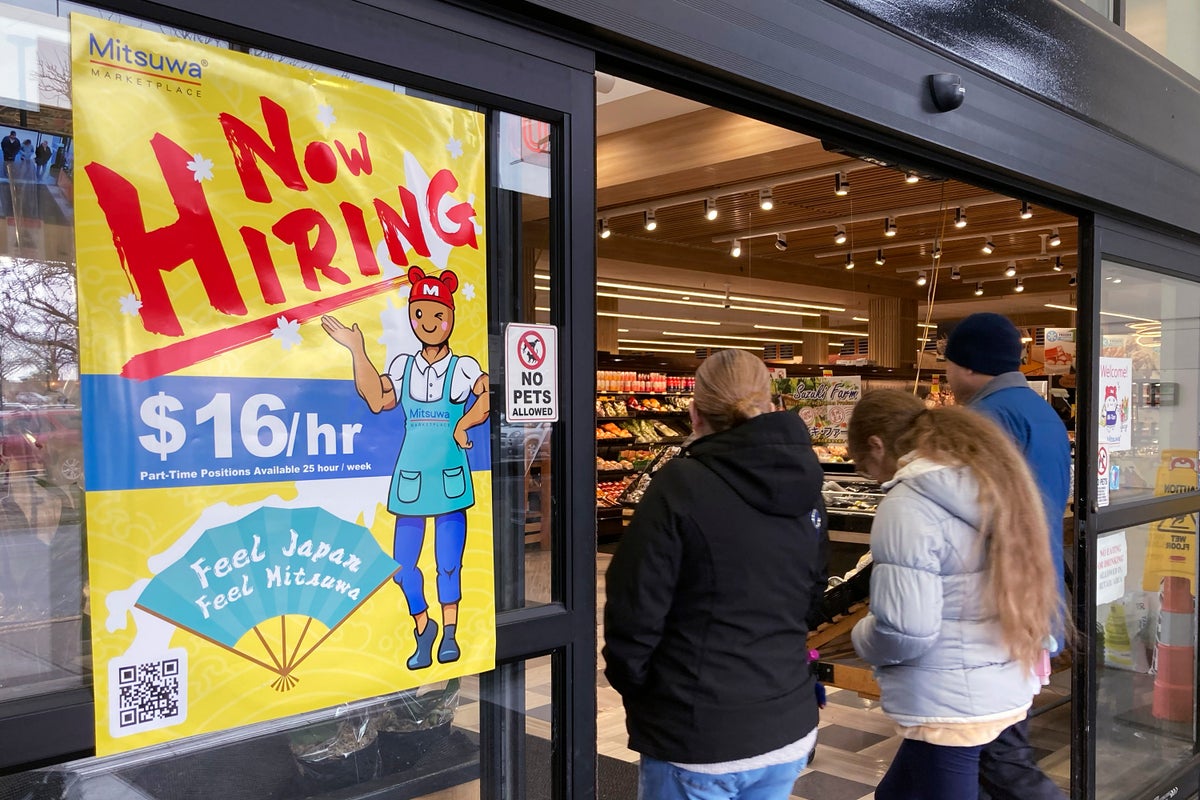
A month ago, the government dropped a bombshell jobs report that showed that America's employers added a sizzling half-million-plus positions in January — twice the December gain and far more than economists had expected.
The February jobs report, to be released Friday, will be closely watched by economists who are eager to know whether the January blowout was a one-time blip or some sign of a strengthening economy.
The answer could heavily influence what the Federal Reserve does in the coming months. A second month of robust hiring could amplify fears that inflation is re-accelerating after months in which it had appeared to be steadily easing. The Fed, in response, would likely pursue a more aggressive pace of rate hikes beginning with its next policy meeting in two weeks.
Some economists say they think the central bank will announce a substantial half-point increase in its key short-term interest rate, rather than a quarter point hike as it did at its meeting in February. In testimony to Congress this week, Chair Jerome Powell made clear that the Fed would increase the size of its rate hikes if evidence continued to point to a robust economy and persistently high inflation
When the Fed raises its benchmark rate, it typically leads to higher rates on mortgages, auto loans, credit card borrowing and business loans. The goal in raising loan rates is to cool borrowing and spending and slow inflation.
Economists have estimated that employers significantly slowed their hiring in February, with a gain of 208,000 jobs, according to a survey by the data provider FactSet. Though that figure would be far below January's gain, it would still be consistent with a healthy economy.
Rapid hiring typically leads businesses to offer higher pay to attract or keep workers, and their higher labor costs are often passed on to their customers through higher prices. It's a cycle that tends to keep inflation elevated.
“We have two or three more very important data releases to analyze before” the Fed's next meeting, Powell told the Senate Banking Committee on Tuesday. “Those are going to be very important.”
Besides Friday's jobs report, those data releases include Tuesday's report on consumer inflation in February. Last month's report on January inflation had raised alarms by showing that consumer prices reaccelerated on a month-to-month basis.
January's vigorous hiring data was the first in a series of reports to point to an accelerating economy at the start of the year. Employers added 517,000 jobs, the most in nearly a year, and the unemployment rate reached 3.4%, the lowest level since 1969. Sales at retail stores and restaurants also jumped, and inflation, according to the Fed's preferred measure, rose from December to January at the fastest pace in seven months.
The stronger data reversed a cautiously optimistic narrative that the economy was cooling modestly — just enough, perhaps, to tame inflation without triggering a deep recession. Now, the economic outlook is hazier.
High borrowing rates have cratered the housing market, with home sales having dropped for 12 straight months, a consequence of the average mortgage rate nearly doubling over that time. Manufacturing is also showing signs of weakness. Higher rates have made it harder for businesses and consumers to borrow to buy major factory goods, from machinery to cars to appliances.
By contrast, spending for services — things like traveling, dining out and attending entertainment events — remains strong. Many Americans continue to engage in activities that were restricted during the COVID lockdowns.
One reason why hiring likely slowed in February, analysts say, is that some of the outsize hiring in January had reflected one-time factors. The weather, for example, was unusually warm, which likely caused more people to go out and spend and allowed more construction projects to continue. The Federal Reserve Bank of San Francisco has estimated that the weather added about 120,000 jobs to January's total.
And a strike by workers at the University of California system ended, adding 36,000 jobs to January's total. Subtracting those two factors would have lowered job growth in January to about 360,000, matching the average gain for the past six months.
Hiring even at that rate is about triple the level the Fed would prefer. Job gains of about 100,000 a month would be just enough to keep up with population growth and prevent unemployment from rising. A figure that low would also mean that employers weren't so desperate for workers and wouldn't have to keep raising wages.
Higher pay is great for employees, of course. But Fed officials say it is contributing to higher inflation, particularly in labor-intensive service industries like restaurants, health care and hotels.
"Strong wage growth is good for workers but only if it is not eroded by inflation," Powell said in testimony to Congress on Wednesday.







